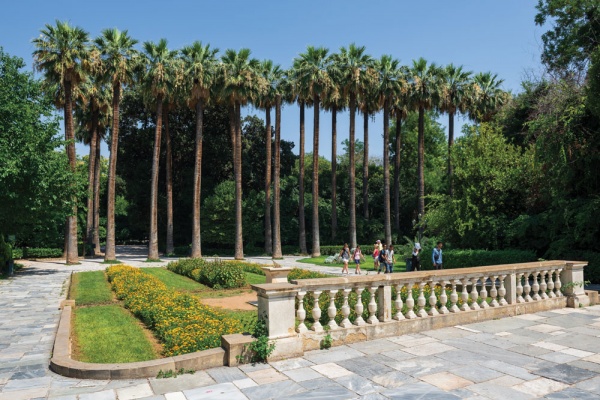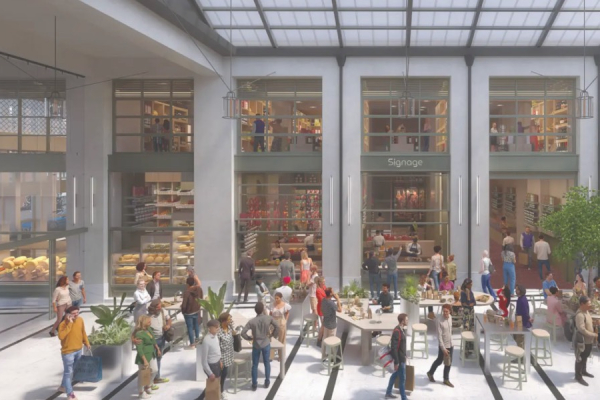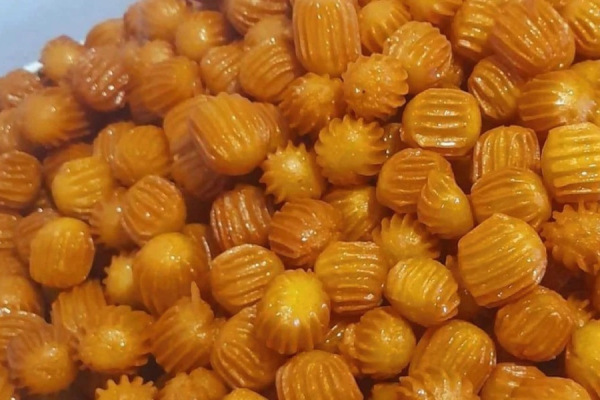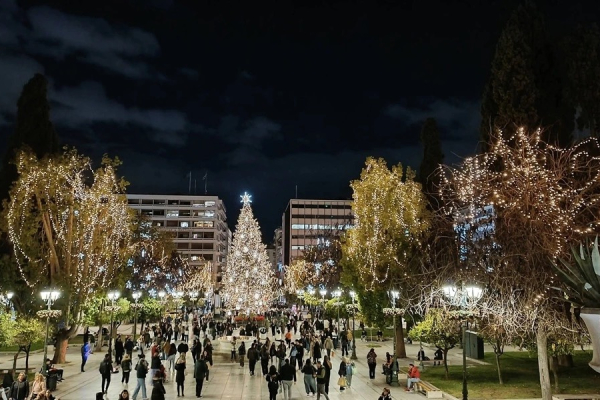In an increasingly industrial era, Athens is not what one would call synonymous to nature. On worn out roads, scorched by car fumes and petrol bombs, it often feels like all that’s left of Athenian nature is a citrus tree here and there, evening primroses, some battered pine trees and a few poplars. But the truth is—not all is lost. While it might be true that Athens has fewer sweeping natural gardens than ever, it would be incorrect to suggest that there is no greenery at all. Instead, we have observed a kind of evolution in the presence of this greenery—in the place of traditional forms of nature, we’ve seen a rising number of restaurant, cafe and museum gardens, as idyllic as any natural grove could possibly be. Let’s take a trip down the different museum and restaurant gardens in Athens, refreshing our memories with some of the classics and discovering the beauty of other hidden gems.
Black Duck Garden
Address: 5-7, loannou Paparrigopoulou, Phone: +30 21 0325 2396
Located at the very heart of Athens, in Klafthmonos Square, is Black Duck Garden—a centre-city hidden gem that offers an unrivaled perspective of both Athens' rich historical and natural environment. In the early 1800s, the garden belonged to Othonas, king of Greece, and his 18-year-old wife, Amalia—and they lived in that very complex until they moved into the palace. The queen had organized the garden around the couple's temporary home in 1836 and it was the capital's first public garden, with four entrances, a fountain and a goldfish cistern. Of course, today, it is only a small remnant of that garden—but the aesthetic spirit of it remains strong, with a palm tree that Amalia had planted still alive and in the middle of the garden oasis. But if historical reasons to visit Black Duck Garden aren’t compelling enough for you, the atmospherical ones will do the trick. Blooming and peaceful, you can catch brunch or down a drink surrounded by greenery, the perfect getaway from crowded Athenian streets. It doesn’t hurt that the food is delicious! It’s also worth visiting the Athens City Museum, located right next to Black Duck Garden. The building used to be the house of Stamatios Dekozis Vouros and contains several interesting artifacts of the time. For the most updated information, please visit: http://blackduckgarden.gr
Numismatic Museum Garden
Address: 12 Leoforos Venizelou Eleftheriou, Phone: +30 21 0363 2057
The Numismatic Museum houses one of the greatest collections of coins, ancient and modern, in the world. The museum itself is housed in the neoclassical mansion of archaeologist Heinrich Schliemann (known for his excavations in the ancient cities of Troy and Mycenae, later acquired by the Greek State and used to house the Greek Supreme Court and later on the Numismatic Museum), and the garden is located in its gorgeous courtyard, just a couple steps from Syntagma Square and the House of Parliament. A true oasis of serenity, removed from the busy city centre of the Greek capital, the garden is in full bloom—of both flora and ancient Greek statues. On a sunny day, consider grabbing a drink at the cafe in the garden—if you do go, you should absolutely stay until later in the evening for the stunning views to come. Also, consider keeping an eye on their events calendar as the Numismatic Museum organizes jazz concerts at the garden from time to time! For the most updated information, please visit: http://www.nma.gr or https://www.facebook.com/NumismaticMuseum.Athens
Byzantine and Christian Museum Garden
Address: 22 Leoforos Vasilissis Sofias, Phone: +30 21 3213 9517
Note: It is closed on Tuesdays.
The Byzantine and Christian Museum resides in the Doukissis Plakentias villa—its Duchess is long gone but her home and her gardens still stand in grandeur. The gardens of the Byzantine Museum are small escapes from reality, littered across seating areas under fruits trees or near aromatic herbs and fountains. Tour the three archeological exhibitions in the gardens and take a journey across ancient Athenian history and art—from the Well-Cistern that depicts how Athens was supplied with water from ancient times to the present, to Paradise, which talks about Byzantine concepts of the afterlife, and the River Ilissos that paints a picture on the development of the fluvial landscape on the banks of the Ilissos from antiquity to modern times.
See the birds chirp, the flowers bloom, the trees sprout, the kids run and so much more in the Byzantine Gardens. If you’re looking for a cool afternoon drink, you can also drop by the cafe-bistro Illisia. For the most updated information, please visit: https://www.byzantinemuseum.gr/en/gardens/
Goulandris National History Museum Garden
Address: 13 Levidou, Kifisia, Phone: +30 21 0801 5870
The Goulandris Natural History Museum is located in the elegant suburb of Kifissia and is home to zoological, botanical, marine, rock, mineral and fossil specimens, aiming to teach all those that come into contact with it about the animal and plant kingdoms and the interaction of ecosystems in Greece and the rest of the world. The museum itself is an enjoyable experience for all—but even more so is the gorgeous garden around it; brimming with over a hundred different varieties of plants, bushes and trees, it’s the perfect place to kick back and let nature envelop you. Accompanying the garden is an equally wonderful cafe, run by Dimitris Skarmoutsos and Dionysis Alertas whose food tastes just as good as the flowers look. For the most updated information, please visit: https://www.gnhm.gr/en
National Archaeological Museum Garden
Address: Patission 44, Phone: +30 21 3214 4800
The National Archaeological Museum is a “must-see” destination for any visitor arriving in Athens—but little is it known that its gardens are actually as impressive as the museum itself. A showpiece in their own right, and renovated in 2016 so as to look like an ancient peristyle courtyard, the gardens were transformed into one of the most aesthetically pleasing exhibits in the museum, boasting native Greek species like cretan dittany, for example, that does not grow anywhere else in the world. According to legend, Aphrodite used the same herb to heal her son Aeneas after he was struck by a spear in the Trojan War. The gardens are heavily influenced by Greek mythology—each of the plants in the garden tells a tale, or rather has a story that can be found on specially placed signposts or on bookmarks that visitors can take away as a souvenir. For the most updated information, please visit: www.namuseum.gr
Kapodistriakon, Kostis Palamas Building
Address: 48 Akadimias, Athina, Phone: +30 21 0368 8711
Τhe neoclassical Kostis Palamas, erected in 1857, serves and operates primarily as a cultural centre, hosting cultural events, conjectural exhibitions, lectures addressed to small audiences, round tables, book presentations, symposiums and more. Kapodistriakon is a restaurant in the building, popular amongst Athens University students, for anything from a romantic date to a business meeting—and when you’re surrounded by the exquisite marble table and flowers beds all around, you feel like you’re a million miles away from the bustling city centre. For the most updated information, visit: https://en.uoa.gr







